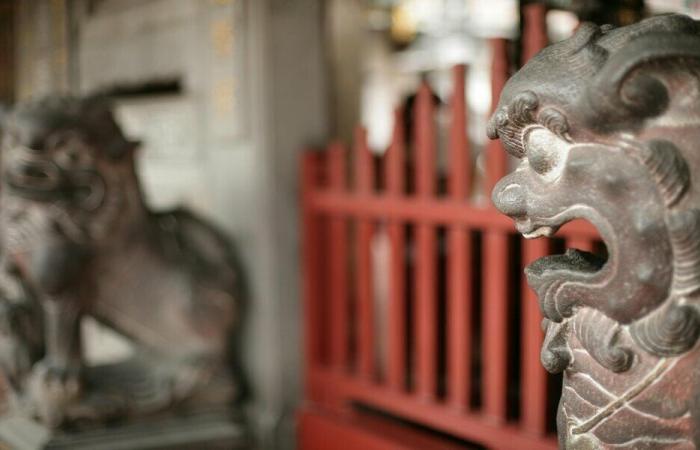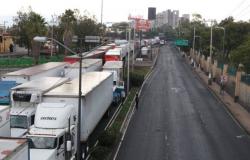If Taiwan is economically blocked from the rest of the world, the losses in world GDP would be around 5%. You just have to see that the island provides 65% of the chips used in almost everyone’s technological devices. Therefore, without this fundamental actortechnology would become more expensive to levels never seen before.
In the case of semiconductors, the company Taiwan Semiconductor Manufacturing Company dominates half of the world market and owns 72% of US imports. The island’s share of the global chip market is 65%, more than half. They are followed by South Korea (18%) and China (5%).
40% of international trade and 70% of the country’s merchandise circulate through the China Sea. If China entered into a military conflict with the West, the entire flow of capital and goods would be diminished and would have a direct impact on the economy on a global scale.
A complex context
The succession of ‘cold wars’ that affect the whole world They can generate a dangerous scenario for the rest of the countries, especially in the area of technology and raw materials. In the event of an armed conflict between China and Taiwan, and the consequent intervention of the US if it chose to defend the island, the world would be plunged into true chaos.
Tensions between China and the US increased after the start of military maneuvers by the Beijing Army on the island. All of this, in retaliation for the visit of the president of the House of Representatives, Nancy Pelosi, who put Spanish companies with interests in the area on guard.
Direct consequences for Spain
The crisis strains international trade between Spain, China and Taiwan. In 2021, Spain exported products to Taiwan worth 697 million dollars, especially pork, automobiles and pharmaceutical products, according to data from the Secretary of State for Commerce.
In the case of imports, these were 1,665 million euros, 37% more than in the previous record. They were driven by sales of steel foundry, telecommunications equipment, electronic components and vehicles.
There are Taiwanese companies such as Acer, Asus or HTC based in Spain that contribute to this trade. The Monthly Foreign Trade Report reflects that there are companies such as BBVA, CAF, Inditex, Mango, Loewe, Amadeus or Porcelanosa that operate directly in the territory, with direct investments worth 98 million euros.
In the case of China is the first export destination for Spain. The Asian giant is the recipient of 3,256 million euros in sales from Spain, that is, 5.8% more. National groups have made direct investments amounting to 6,816 million euros.
Of the companies based in China, including Inditex, Mango, Antolin, Gestamp, Meliá, Roca, Puig, Torres, Cie and Grifols, among others. You just have to see how in 2019, Grifols acquired 26.2% of Shanghai Rass as a result of a share exchange valued at 1.7 billion euros.
In addition to data and information treatment and processing machines, electrical accumulators and leather goods are the most marketed products. The second product that Spain buys the most are transistors and semiconductors, worth 1,157 million euros.
To worsen the political and economic relations between China, the US and Taiwan, Spain would be seriously affected. China is the first destination for Spanish exports in Asia. Its sales grew by 5.8% in 2021. Without going any further, Spain sold agri-food production in 2021 for a value of 3,256 million euros. Specifically, pork is the most demanded product. An asset that will continue to be harmed in the event that the Asian country takes serious retaliation against Europe for the tariffs imposed against electric cars.
Other Spanish exports are raw materials, semi-manufacturing, chemicals, automotive and medicines.
Specific cases of Spanish success in Taiwan and China
The Familia Torres winery operates in China through Shanghai Torres Wine Trading. In 2021 alone, it managed to invoice 200.8 million euros, 67% corresponding to foreign markets with China as one of the main buyers. In the case of Mango, it has 20 stores in Taiwan and six in China (with 262 factories). And it is that China is the country with the largest number of textile company plants that work for the textile company.
Inditex has 21 establishments in Taiwan, of which 9 are from Zara, 3 from Pull and Bear, 4 from Massimo Dutti, 3 from Bershka and 2 from Zara Home. In China, it had 303 at the end of the 2021 financial year, 34 less than a year before, of which 133 are from Zara, 70 from Massimo Dutti, 61 from Oysho and 39 from Zara Home, with more than 5,700 employees.
We must not forget that of the 1,790 suppliers of the Inditex group, 415 are in China, where it has more than 1,500 factories and 652,000 employees.






